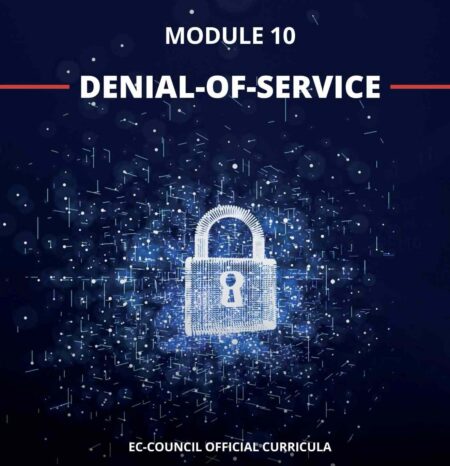All parents try their best to raise respectful and well-mannered kids. However, it has become a daunting task in the digital age.
Nonetheless, it is also our job as parents to help our kids practice responsible digital citizenship. Parents can begin by helping kids understand what digital citizenship means.
What Is Responsible Digital Citizenship?
A digital citizen has to fulfill specific responsibilities. Responsible digital citizenship is about maintaining a healthy relationship with technology and staying safe online.
It warrants respecting, educating, and protecting yourself and others in an online environment.
Parents must ensure their kids comprehend their duties and protect their rights online. Next comes establishing ground rules, setting clear expectations, and enforcing accountability.
Ways of Encouraging Kids to Practice Responsible Digital Citizenship
It is no secret that kids outsmart their parents by using technological devices. However, parents outrank their kids in foreseeing the dangers posed by the digital world.
They know the best way to help kids practice responsible digital citizenship is by introducing digital ground rules in the house, setting behavioral expectations, and ensuring accountability.
1. Digital Safety
Parents must help kids practice digital safety. They can do so by educating kids about digital media issues, such as cyberbullying, racial slurs, mean comments, etc., and their detrimental effects on one’s mental health. A simple question like “How would it feel if it happened to you?” can help.
2. Showing Respect
As adults, we must model good behavior for kids as they follow in our footsteps. Teaching good manners, ethics, moral values, and etiquette ensures a healthy mindset.
Teach them how to stand up for what is right without resorting to violence or mean words.
3. Maintaining a Screen-Time Routine
Parents know better than to relax after having a conversation or two with their kids. So, what is your plan B?
Have you explored parental monitoring apps like FamilyTime? It can help your kids maintain a healthy screen-time routine.
For instance, parents can use the Parental control app Screen Time Limit, BedTime, and Screen Time Schedule features to specify when kids can access their devices in addition to defining their bedtime.
4. Defining Privileges
Kids must know that their internet access, technology usage, and digital privacy are privileges. They must also understand when and how their privileges can get taken away.
Parents need to be aware of what their kids do online to keep them safe from threats like piracy, the dark web, online grooming, catfishing, etc.
The best way to ensure kids’ digital safety is by taking them in confidence and letting them why their activities require monitoring.
How you monitor them is a different story altogether. One way is to ask kids for their passwords, check their devices, and become helicopter parents.
Or, you can use a parental monitoring app, such as FamilyTime, and manage everything from your parental device with ease.
Kids must acknowledge that they cannot be reckless with their privileges. If they do, they better be ready to face the music. It is the best way to instill a sense of accountability in kids.
5. Enforce Accountability
Obviously, we cannot expect kids to be perfect, so there is always room for errors. Therefore, helping kids accept their mistakes is also a way of encouraging responsible digital citizenship.
With that in mind, parents can ask their kids to sign a digital responsibility contract to enforce accountability.
If kids behave rashly, refuse to take make up for their follies, or breach their agreement in any way, they would be held liable to face the consequences.
They could lose access to their devices, screen time, internet access, driving privileges, etc.
Parental Control Apps & Responsible Digital Citizenship
Parental control apps can help parents teach their kids responsible digital behavior.
Many top-tier parental apps offer features, such as screen time limits, internet filters, app blockers, call & text monitoring, etc.
These services allow parents to monitor kids’ digital activities and teach them online safety rules. They can also reprimand kids for not following rules or misbehaving on digital platforms. Let’s look at the best three parental apps and how they can help.
1. Qustodio
Like FamilyTime, it offers many cool features such as social media monitoring, call & text monitoring, location tracking, internet filter, screen time limit, etc.
It notifies parents if kids are getting bullied or trolled, and helps protect kids’ privacy.
It works well across several operating systems and is slightly expensive compared to other parental apps.
2. FamilyTime
FamilyTime app is one of the best parental apps and allows parents to monitor kids’ and teens’ digital activities.
They can protect them against digital threats like screen addiction, cyberbullying, online grooming, excessive use of social media, etc. using FamilyTime’s cool features.
They can also track kids’ locations and monitor their web history. It works seamlessly on Android and iOS systems and offers four affordable packages with a free three-day trial version.
3. Bark
Bark is one of the top parental apps for several reasons. It enables parents to monitor kids’ social media seamlessly without becoming helicopter parents.
They can monitor kids’ web activities and steer them in the right direction as needed. Even though it is an expensive option, Bark app is versatile and works well across various operating systems.
Digital citizenship is based on mutual respect and valuing privacy. Parents must take the lead and show kids how to become well-behaved digital natives.








